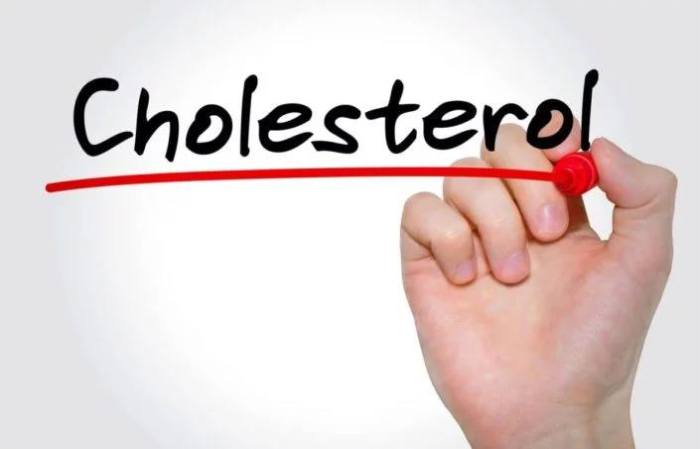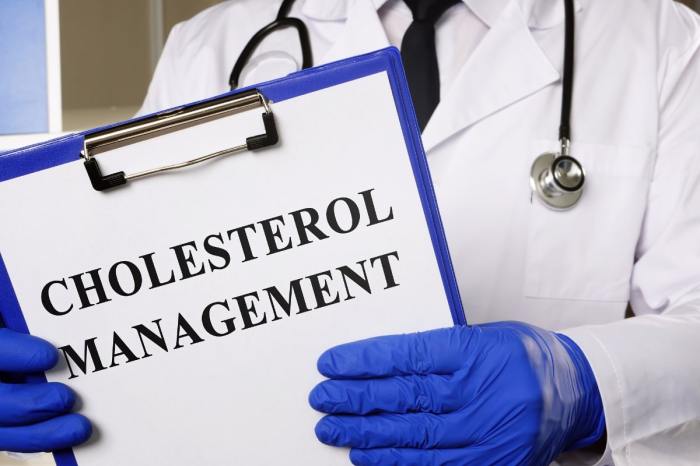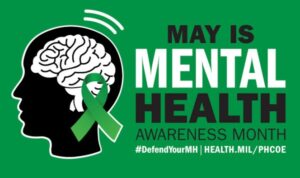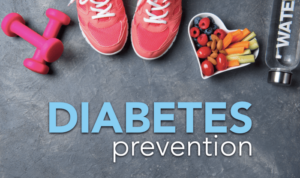Cholesterol management is crucial for overall health, and understanding how to navigate this topic is key. From lifestyle changes to medications and prevention, let’s dive into the world of cholesterol management.
Understanding Cholesterol

Cholesterol is a waxy, fat-like substance found in every cell of the body. It plays a crucial role in building cell membranes, producing hormones, and aiding in digestion.
LDL (Bad) Cholesterol vs. HDL (Good) Cholesterol
LDL cholesterol, often referred to as “bad” cholesterol, can build up in the walls of arteries, leading to atherosclerosis and increasing the risk of heart disease. On the other hand, HDL cholesterol, known as “good” cholesterol, helps remove LDL cholesterol from the bloodstream, reducing the risk of heart disease.
Impact of High Cholesterol Levels
When cholesterol levels are too high, it can lead to the accumulation of plaque in the arteries, restricting blood flow and increasing the risk of heart attack and stroke. Additionally, high cholesterol levels can also affect other organs and increase the risk of conditions like diabetes and hypertension.
Common Misconceptions about Cholesterol
– “All cholesterol is bad”: While high levels of LDL cholesterol can be harmful, the body needs some cholesterol to function properly.
– “Only older adults need to worry about cholesterol”: High cholesterol can affect individuals of all ages, making it essential to monitor cholesterol levels regularly.
– “Diet alone can fix high cholesterol”: While diet plays a significant role, other factors like genetics and lifestyle choices also impact cholesterol levels.
Lifestyle Changes for Cholesterol Management

Maintaining healthy lifestyle habits is crucial for managing cholesterol levels effectively. By incorporating regular exercise, a balanced diet, and specific foods into your routine, you can make a positive impact on your overall health.
Regular Exercise for Cholesterol Management
Regular exercise plays a key role in managing cholesterol levels. Physical activity helps increase HDL (good) cholesterol and lower LDL (bad) cholesterol. Aim for at least 150 minutes of moderate-intensity exercise per week, such as brisk walking, jogging, or cycling.
Balanced Diet for Lowering Cholesterol
A balanced diet is essential for lowering cholesterol levels. Focus on eating plenty of fruits, vegetables, whole grains, and lean proteins. Limit saturated fats and trans fats, as they can raise LDL cholesterol levels. Incorporate healthy fats like omega-3 fatty acids from sources like fish, nuts, and seeds.
Foods to Help Reduce Cholesterol Levels
Certain foods can help reduce cholesterol levels when included in your diet. Opt for foods high in soluble fiber, such as oats, beans, and lentils, which can help lower LDL cholesterol. Include plant sterols and stanols found in fortified foods like margarine, as they can also help reduce cholesterol absorption in the body.
Medications and Treatments
When it comes to managing high cholesterol, medications are often prescribed to help lower cholesterol levels and reduce the risk of heart disease. These medications work in different ways to target cholesterol levels in the body and may be used in combination with lifestyle changes for optimal results.
Common Medications for High Cholesterol
- Statins: These are the most commonly prescribed medications for high cholesterol. They work by blocking a substance your liver needs to make cholesterol, thus helping lower LDL (“bad”) cholesterol and raise HDL (“good”) cholesterol levels.
- Ezetimibe: This medication helps reduce the amount of cholesterol absorbed by the intestines, leading to lower cholesterol levels in the blood.
- PCSK9 inhibitors: These medications help the liver remove LDL cholesterol from the blood, resulting in lower LDL levels.
- Fibrates: Fibrates are used to lower triglyceride levels and increase HDL cholesterol levels.
How Cholesterol-Lowering Medications Work
Cholesterol-lowering medications work by targeting different aspects of cholesterol production and absorption in the body. By interfering with these processes, these medications help reduce cholesterol levels in the blood, therefore lowering the risk of heart disease and other cardiovascular complications.
Potential Side Effects of Cholesterol-Lowering Drugs
It’s important to note that while cholesterol-lowering medications can be effective, they may also come with potential side effects. Some common side effects include muscle pain, liver damage, digestive issues, and an increased risk of type 2 diabetes.
Alternative Treatments or Supplements for Managing Cholesterol, Cholesterol management
- Omega-3 fatty acids: Found in fish oil supplements, omega-3 fatty acids can help lower triglyceride levels and reduce inflammation in the body.
- Plant sterols and stanols: These compounds, found in certain foods and supplements, can help block the absorption of cholesterol in the intestines.
- Red yeast rice: This supplement contains naturally occurring statins that may help lower cholesterol levels.
Monitoring and Prevention
Regular cholesterol screenings are crucial in monitoring your cholesterol levels and overall heart health. By getting tested regularly, you can track any changes in your cholesterol levels and take necessary steps to manage them effectively.
Risk Factors for High Cholesterol
- Family history of high cholesterol or heart disease
- Poor diet high in saturated fats and cholesterol
- Lack of physical activity
- Obesity or being overweight
- Smoking and excessive alcohol consumption
Preventing High Cholesterol through Lifestyle Modifications
- Eat a healthy diet rich in fruits, vegetables, whole grains, and lean proteins
- Limit intake of saturated fats, trans fats, and cholesterol
- Engage in regular physical activity like walking, running, or biking
- Avoid smoking and reduce alcohol consumption
- Maintain a healthy weight through a balanced diet and exercise
Maintaining Healthy Cholesterol Levels
- Follow a heart-healthy diet low in saturated fats and cholesterol
- Stay physically active with regular exercise
- Avoid smoking and limit alcohol intake
- Manage stress through relaxation techniques like yoga or meditation
- Take prescribed medications as directed by your healthcare provider



